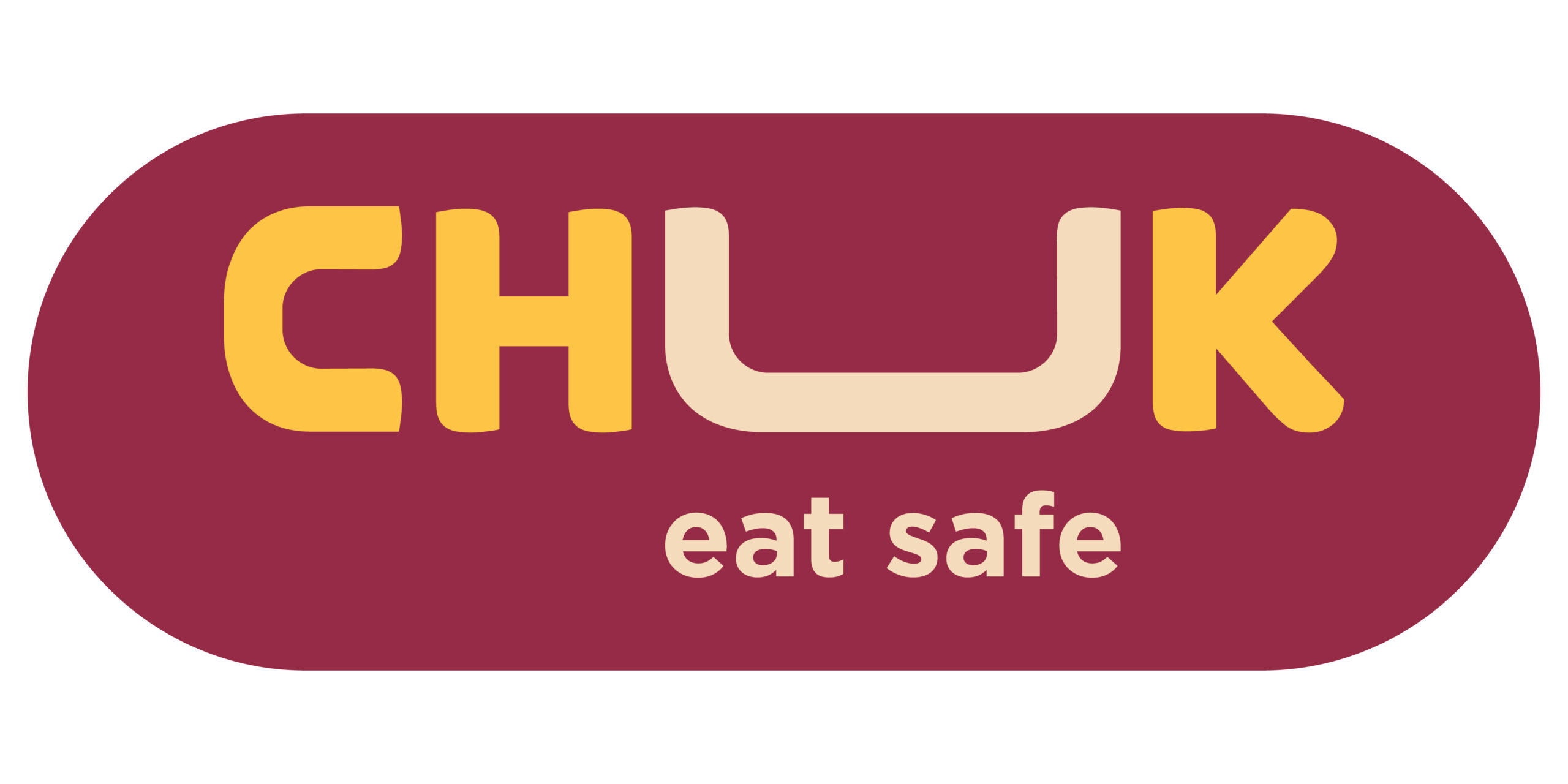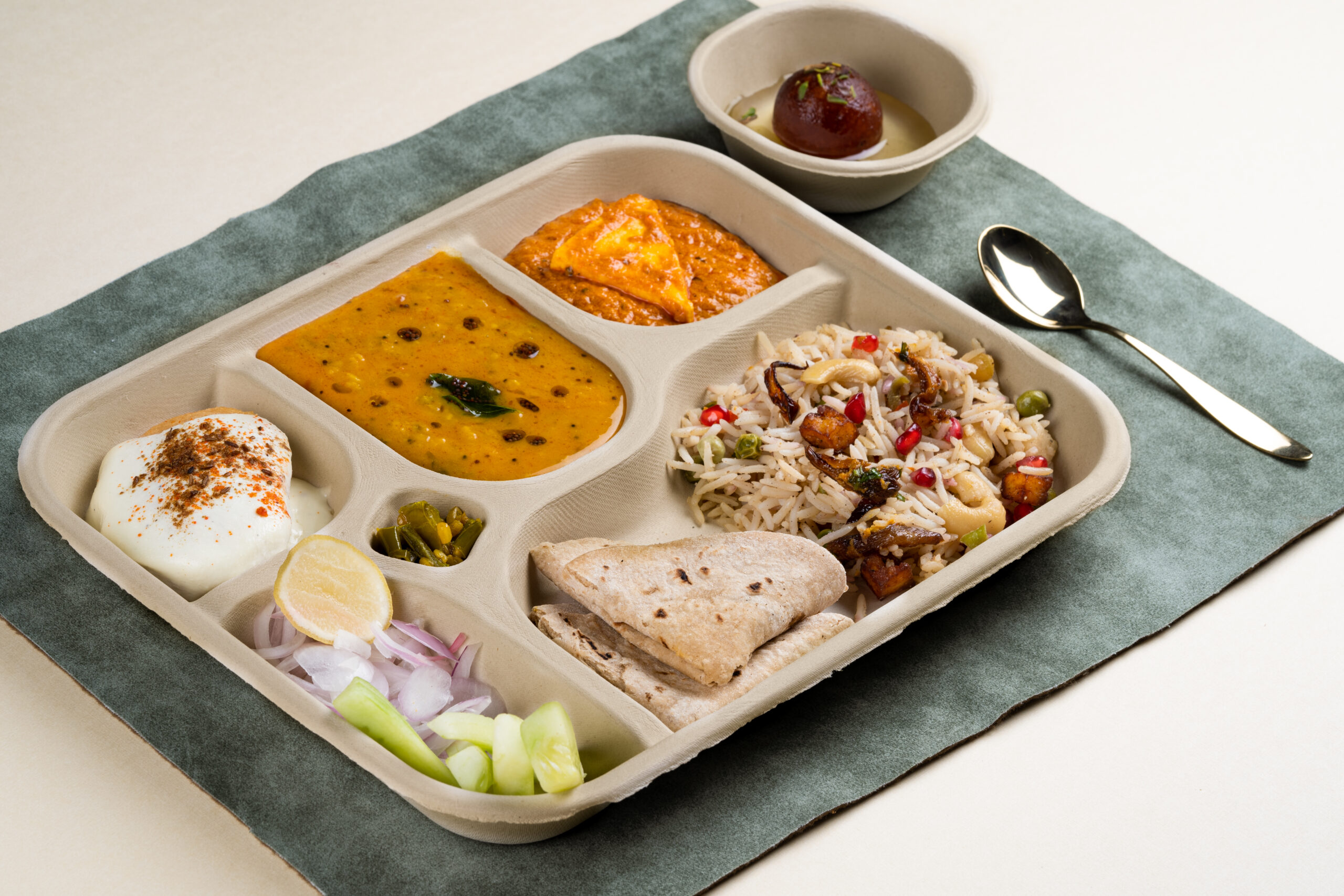A rising understanding of the significance of sustainable practices has emerged in recent years as a means of reducing the damaging effects of human activity on the environment. Disposable plates that can be composted are a powerful instrument for encouraging environmental responsibility and sustainability. It helps in many different ways.
Reusable or eco-friendly disposable food containers are sustainable solutions that help minimise waste and the environmental impact on the food service industry. In this blog article, we’ll look more closely at Chuk’s motivational path to zero waste and investigate the methods we adopted to build a more sustainable future.
Sustainable Disposables
Disposables that are eco-friendly, like Chuk’s goods, are created from renewable resources like sugarcane bagasse. It is produced from the fibrous sugarcane stalk, a waste product that is frequently burned by sugarcane farmers and sugar mills. Chuk buys that and turns it into biodegradable plates and bowls containers rather than allowing them to be burned and harm the environment.
Waste management technological innovations
- CHUK’s plan relies on waste management technological advances.
- Methane extraction from wastewater is used as a renewable energy source, which helps to reduce greenhouse gas emissions.
- Repurposing sewage into egg trays helps the circular economy and environmentally sustainable waste management.
- CHUK intends to work together with its suppliers to reduce waste generation throughout its value chain.
100% utilisation of biomass-based energy
The use of pith and rice husk for electricity generation has various environmental and economic benefits. Pith, the soft spongy tissue inside the sugarcane stalk, and rice husk, the outer protective covering of rice grains, can both be used as biomass fuel sources. When pith and rice husk are burned in specialist boilers or on-site power plants, thermal energy is released that can be used to create electricity or heat industrial operations. This use of agricultural waste materials avoids our disposal as waste and minimises dependency on fossil fuels.
Recycling and waste management
Chuk places a high value on all-encompassing waste management procedures. To encourage compostable disposable tableware and recyclable plates, we actively work with recycling partners. Chuk encourages customers to take part in recycling and composting projects by providing information and advice. Chuk reduces the quantity of garbage that goes to landfills by putting a strong emphasis on efficient waste management, which helps to create a more sustainable waste management system.
Health and well-being
Under the 10-Year Framework of Programmes on Sustainable Consumption and Production, increase resource efficiency in consumption and production gradually and strive to separate economic growth from environmental damage.
Improve infrastructure and adapt industries to make them more sustainable by increasing resource efficiency and increasing the adoption of clean and ecologically sound technologies and industrial processes.
Ongoing Innovation and Inspiration
Chuk funds research and innovation to stay on biodegradable plate manufacturers in India, the leading edge of waste management techniques. To investigate fresh materials, enhance manufacturing techniques, and find creative ways to reduce waste, we aggressively seek cooperation with research organisations and industry specialists. Chuk aims to be a leader in the sector for sustainable practices and waste reduction by embracing continual improvement and technical advancements.
Chuk’s commitment to Zero Waste:
An organisation that takes environmental responsibility seriously is Chuk. From product design and sourcing to production and trash management, our drive toward zero waste involves many facets of our business.
- Design for Durability and Reusability: Chuk concentrates on the best disposable plates creating long-lasting, reusable, and strong items. We strive to reduce the demand for single-use alternatives and lower waste production by producing high-quality products that can endure several uses.
- Sustainable Sourcing: Chuk focuses on working with suppliers who share a commitment to sustainability when it comes to sustainable sourcing. We obtain products from dependable suppliers and party decoration items, who follow morally and environmentally sound standards, making sure that the entire supply chain supports our waste reduction objectives.
- Efficient Manufacturing Procedures: Chuk makes a lot of effort to streamline our manufacturing processes to produce less waste. We implement the principles of lean manufacturing, which include optimising processes, using takeaway containers bulk to reduce material waste, and maximising energy efficiency.
- Educating and Inspiring Change: Chuk is a big supporter of the capacity of knowledge and awareness to inspire change. To promote waste reduction and the advantages of sustainable alternatives, we actively engage with our clients, business partners, and the surrounding areas.
Suppliers of compostable cutlery
Compostable cutlery is created from natural and renewable resources by several biodegradable cutlery manufacturers. Chuk is one of the top athletes. Chuk is dedicated to developing environmentally safe, waste-free goods that are also sustainable.
Chuk creates compostable cutlery from sugarcane bagasse, a resource that is rapidly expanding and sustainable. Our cutlery is sturdy, long-lasting, and eco-friendly. Our cutlery is entirely biodegradable and decomposes swiftly.
Future Plans and Impact:
Chuk’s efforts to reduce waste have already had a substantial positive effect on our environmental footprint. We have prevented tons of waste from going to landfills by creating disposable food delivery containers and encouraging people to use greener options. We are still committed to producing no waste, though. Chuk is committed to finding innovative and creative ways to reduce waste across all of our activities and to motivate people to join the fight for zero-waste living.
Taking a look at the emissions
The emissions from CHUK have been classified into eight groups. For starters, stationary combustion contributes to emissions from the burning of fuel in boilers, furnaces, and other heat or power generation equipment. Second, mobile combustion emissions from on-road vehicles, such as cars, trucks, and other vehicles powered by gasoline or diesel, add to CHUK emissions.
The third category includes purchased electricity, which accounts for emissions from power plants that supply CHUK’s electricity. The fourth and fifth categories include acquired products and services, which include emissions created during the manufacturing and shipping of CHUK-purchased commodities.
Conclusion
Chuk’s desire to eliminate waste is an excellent example of our dedication to environmental sustainability and our goal for a circular economy. Chuk is an outstanding instance of waste reduction in the industry, using sustainable materials procurement, smart product design, waste management techniques, closed-loop systems, and continual innovation. Customers can help create a greener future and take part in the general effort to reduce waste and save the environment by purchasing Chuk’s tableware.
Chuk’s waste reduction initiatives show how companies may have a big beneficial impact by prioritising sustainability and implementing innovative methods. Chuk’s journey motivates businesses to work to build a more sustainable and waste-free society as we continue to solve the world’s waste problems.


